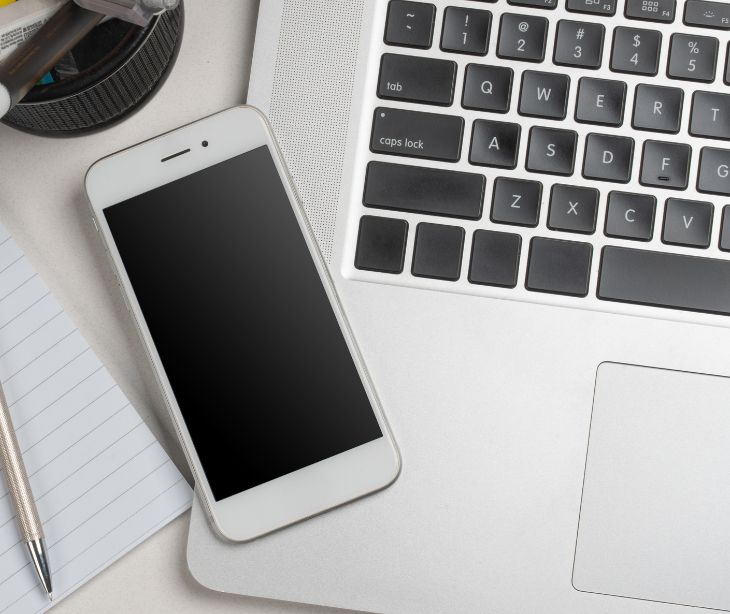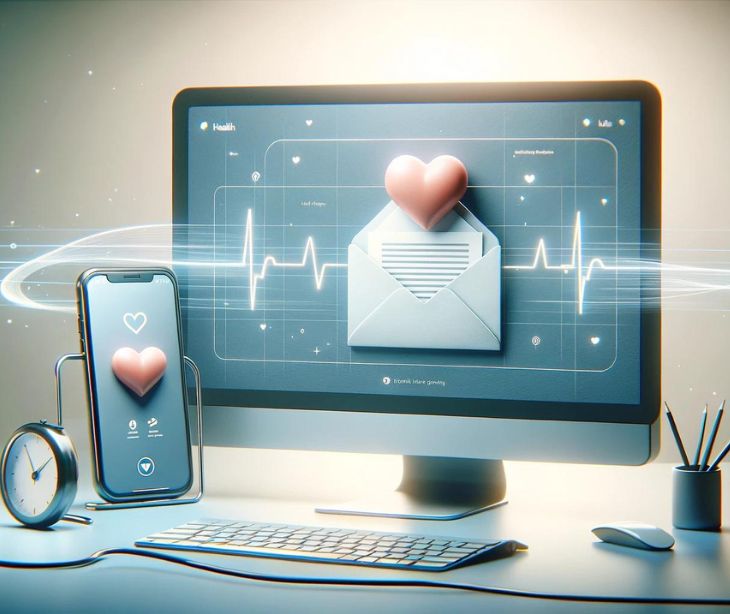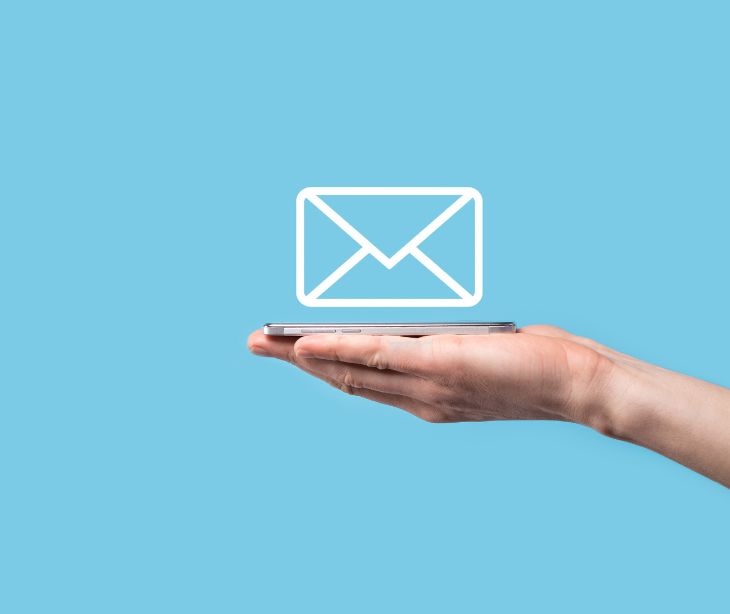3 min read
Empowering patients with HIPAA compliant emails and texts
Caitlin Anthoney April 12, 2024

What is patient empowerment?
Health innovation states “Patient empowerment is a process through which people gain greater control over decisions and actions affecting their health.”
Historically this meant “supporting patients with educational materials such as pamphlets about disease prevention…” and these types of materials are still being implemented across the world.
However, as digital health information is digitized, the delivery of educational materials has shifted towards online platforms and mobile applications. This allows for easier access to information and greater reach to a wider audience.
How empowering patients leads to better health outcomes
Research on the effect of patient engagement states “There is a growing body of evidence showing that patients who are more activated have better health outcomes and care experiences.“ More specifically, “policies and interventions aimed at strengthening patients' role in managing their health care can contribute to improved outcomes and that patient activation can-and should-be measured as an intermediate outcome of care that is linked to improved outcomes.”
This approach encourages patients to take ownership of their health and adhere more closely to recommended treatment plans. Additionally, access to digitized health information enables patients to make informed choices and adopt healthier behaviors. As a result, empowered patients are more likely to adhere to medication regimens, attend follow-up appointments, and actively manage chronic conditions.
Read also: Improving medication adherence with HIPAA compliant texts
How HIPAA compliance empowers patients
HIPAA compliance empowers patients by ensuring the confidentiality and security of their sensitive health information in all forms of communication.
This protection instills trust and confidence in patients, allowing them to freely engage with their healthcare providers without fear of privacy breaches. With HIPAA compliant communication, patients have greater control over their medical data, allowing them to actively participate in their care decisions and treatment plans.
Moreover, HIPAA regulations mandate that healthcare organizations provide patients access to their own health records, promoting transparency and enabling individuals to take charge of their health management.
HIPAA compliance ensures patient privacy and transparency, creating a patient-centered healthcare environment that empowers individuals to take an active role in their healthcare journey.
Read also: How healthcare organizations can balance privacy and transparency in patient communication
How providers can empower patients with HIPAA compliant communication
Using secure platforms: Healthcare providers must use a HIPAA compliant platform, like Paubox, that encrypts messages containing sensitive health information. With HIPAA compliant emails or text messaging, providers can ensure that only authorized parties access the content. This will help protect patient privacy and maintain compliance with regulations. Additionally, using secure platforms can also help prevent data breaches and potential legal consequences.
Provide patient education: Empowering patients begins with education. Providers can deliver personalized health information directly to patients' inboxes or mobile devices. Here, patients can receive educational materials about managing chronic conditions, preventive care measures, or medication adherence tips via HIPAA compliant emails or text messages.
Obtain Explicit Consent: Healthcare providers must get explicit consent from patients acknowledging the advantages and disadvantages of electronic communication before sending them emails or texts. This consent should outline the potential for privacy and security breaches, as well as the limitations of electronic communication in terms of diagnosis and treatment. Healthcare providers must also establish clear guidelines for responding to patient inquiries and ensuring timely communication.
Train staff on HIPAA compliance: Providers must undergo regular training on HIPAA regulations, including handling patient-protected health information (PHI) in emails or text messages.
Implement Two-Factor Authentication: Adding an extra layer of security through two-factor authentication can further protect patient information in email communication. This authentication method requires users to provide two forms of identification, such as a password and a unique code sent to their mobile device, before accessing their email accounts.
Monitor and audit emails and texts: Healthcare organizations should implement monitoring and auditing processes to track emails and texts to identify any potential security breaches or violations. Regular audits help ensure that HIPAA compliant practices are being followed consistently.
FAQs
How does HIPAA compliance empower patients?
HIPAA compliance empowers patients by safeguarding their privacy and enabling secure communication with healthcare providers. HIPAA compliant communication gives patients more trust and confidence in their relationships with healthcare providers.
Why is patient education important in healthcare?
Patient education helps patients understand their health information, make informed decisions, and actively participate in their healthcare, leading to improved health outcomes.
How can healthcare organizations overcome literacy barriers in patient empowerment?
Healthcare organizations can provide resources and support to improve health literacy and digital literacy among patients, ensuring they can effectively access and understand their health information.
Subscribe to Paubox Weekly
Every Friday we bring you the most important news from Paubox. Our aim is to make you smarter, faster.




